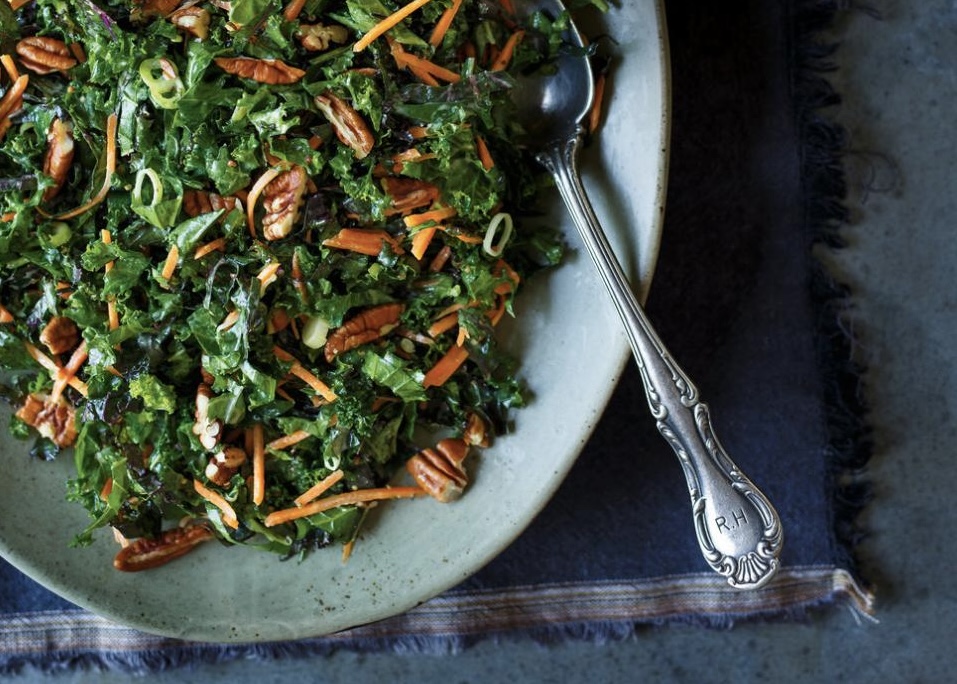Between tradition and nutritional benefits
Kale is an essential part of a healthy, balanced diet.
Renowned for its nutritional richness, versatility in the kitchen and multiple health benefits, this ancient vegetable has been enjoying a veritable renaissance in recent years.
Originating in Europe and cultivated since Roman times, this product is ideal both for those seeking well-being and for chefs looking for tasty, versatile ingredients.
Rich in vitamins, minerals and antioxidants, kale is characterized by its many health benefits and culinary versatility.
Whether cooked, raw, in smoothies or potato chips, they come in all shapes and sizes to delight the palate and keep the body healthy.
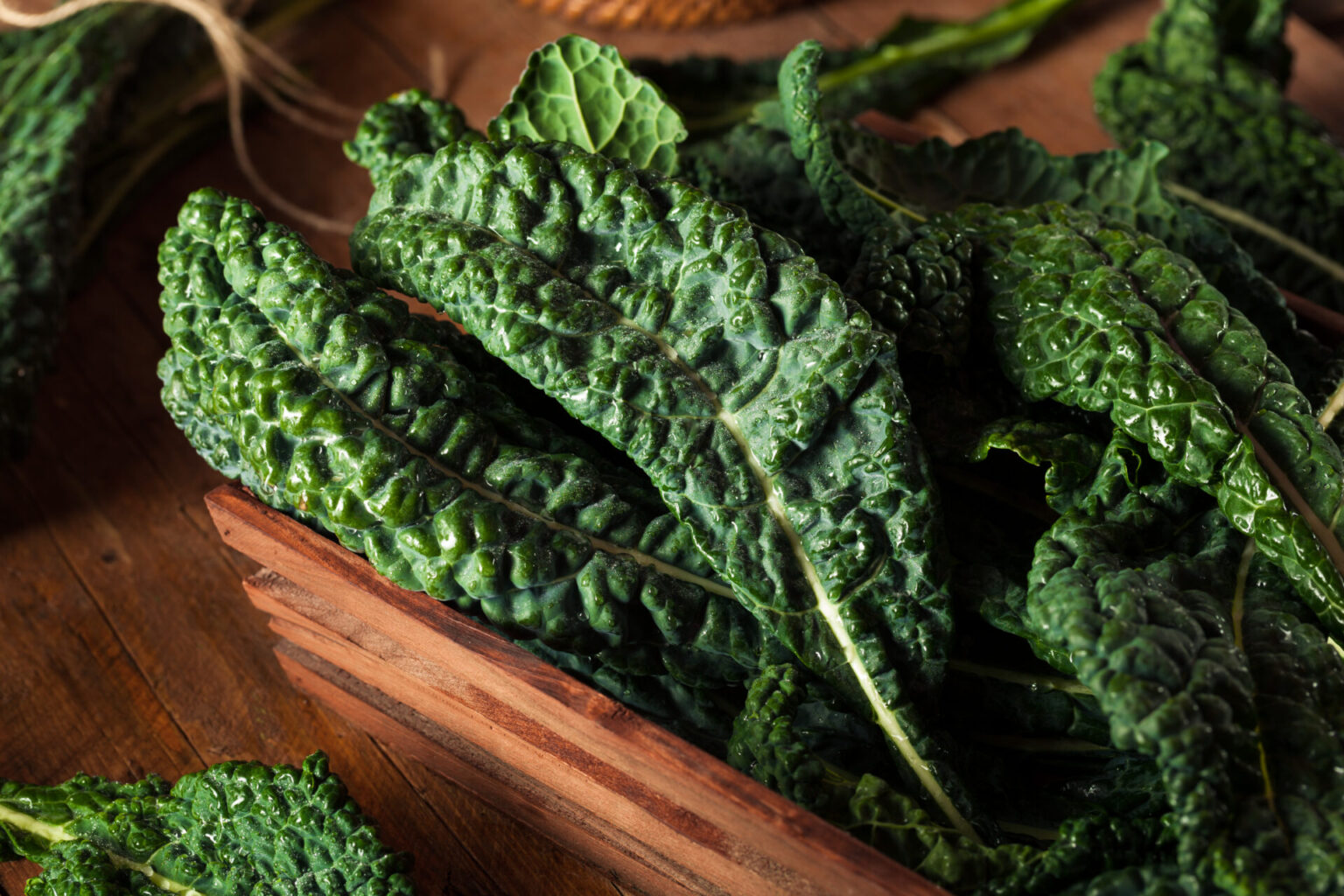
The many virtues of kale
A benefit for digestion
The fiber present in kale contributes to healthy intestinal function and helps prevent constipation. It also promotes the development of beneficial intestinal bacteria, contributing to optimal digestion. If you want to enrich your diet with fiber without resorting to supplements, kale is a perfect choice.
A powerful anti-inflammatory
Kale contains anti-inflammatory properties. This helps reduce chronic inflammation, generally associated with diseases such as arthritis, heart disease and certain types of cancer. Consumption of kale may contribute to better management of inflammation in the body.
A natural beauty secret
Kale, rich in vitamins A and C, promotes collagen production, helping to keep skin healthy and youthful. It also encourages cell tissue regeneration and helps prevent the premature appearance of wrinkles. Whether used in your recipes or directly as a mask, kale provides deep nourishment for the skin and preserves its radiance.
A must for healthy bones
Kale is a remarkable source of vitamin K, essential for bone mineralization. It is also rich in calcium, which ensures strong bones.
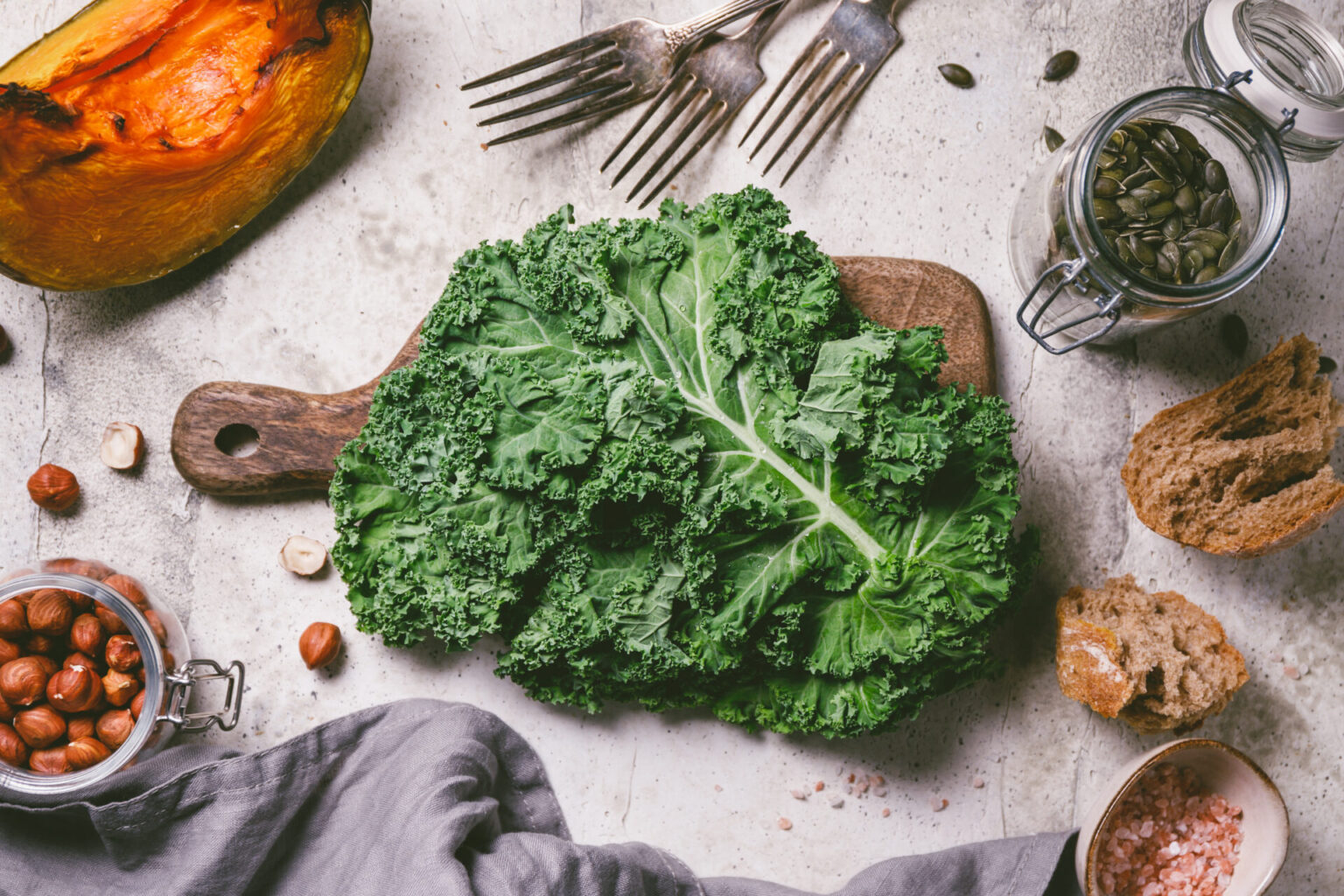
Contraindications to kale consumption
Kale is a beneficial food to include in your diet, thanks to its nutritional richness and numerous health benefits.
However, certain conditions require limited consumption, or even total exclusion, particularly for people on anticoagulant therapy or those with digestive disorders.
People on anticoagulant therapy should take care when eating kale, as it contains high levels of vitamin K.
This vitamin plays a key role in blood coagulation, and can reduce the effectiveness of this treatment, potentially disrupting its efficacy.
For those suffering from digestive disorders, kale can have irritating properties for the intestine.
High in fiber and FODMAPs (fermentable carbohydrates), it can cause bloating, transit problems and abdominal pain in sensitive individuals.
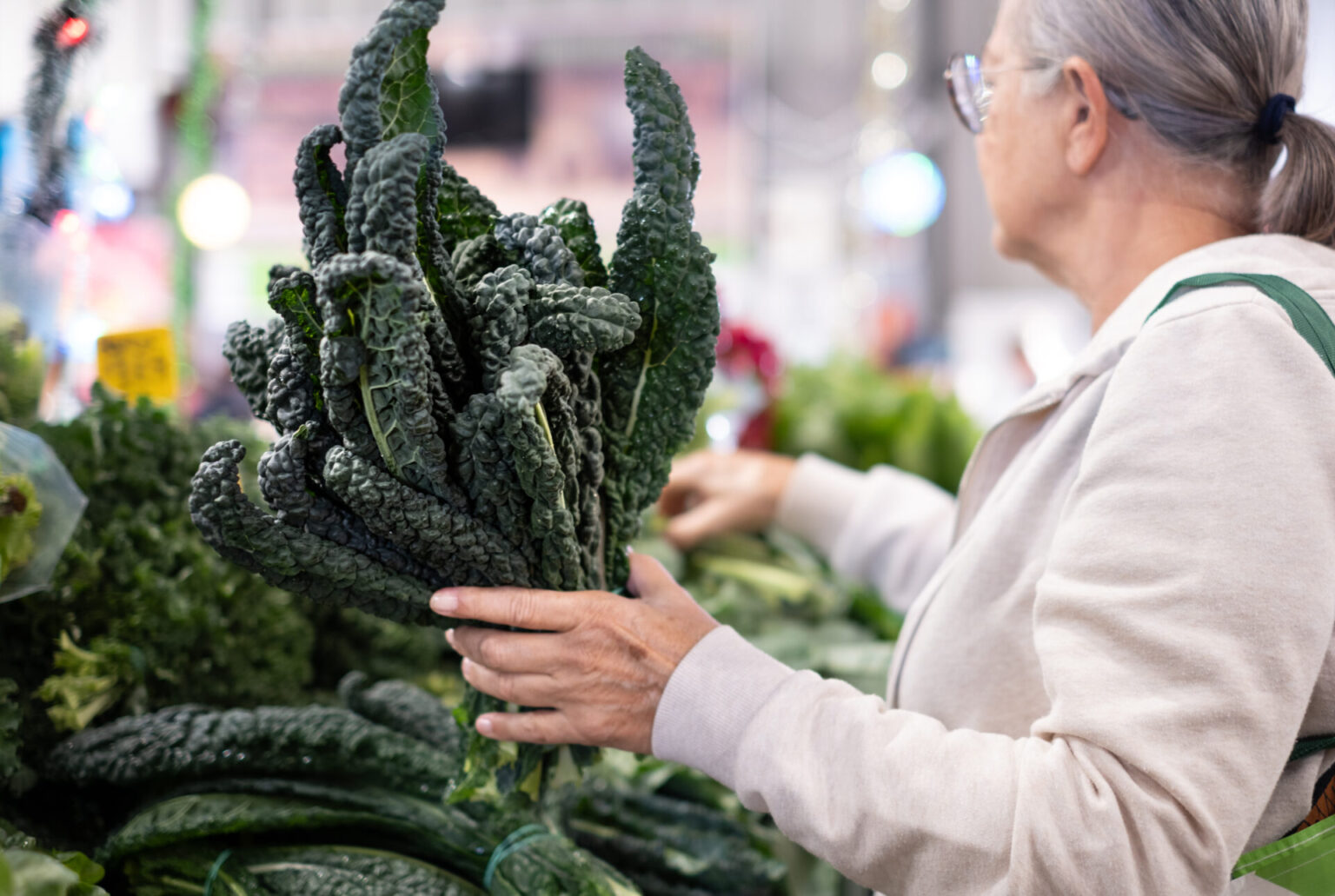
Recipes
Kale chips with Airfryer
by influencer @ameliezen5
Preparation: 5 min Cooking time : 4 min
Ingredients:
For 2 servings :
kale leaves
1 tbsp olive oil
1 tbsp lemon juice (about the juice of a quarter of a lemon)
1 pinch salt
1/2 tsp smoked paprika
Preparation:
1. Prepare the kale: Remove the central stem by sliding your fingers along the stem. Tear leaves into pieces.
2. Season: In a bowl, combine olive oil, lemon juice, salt and smoked paprika. Add the leaves and massage well with your hands to ensure they are well coated.
3. Place leaves in basket without overlapping. Bake for 4 minutes at 180°C in the Airfryer.
4. Tasting: Allow to cool for a few moments before enjoying.
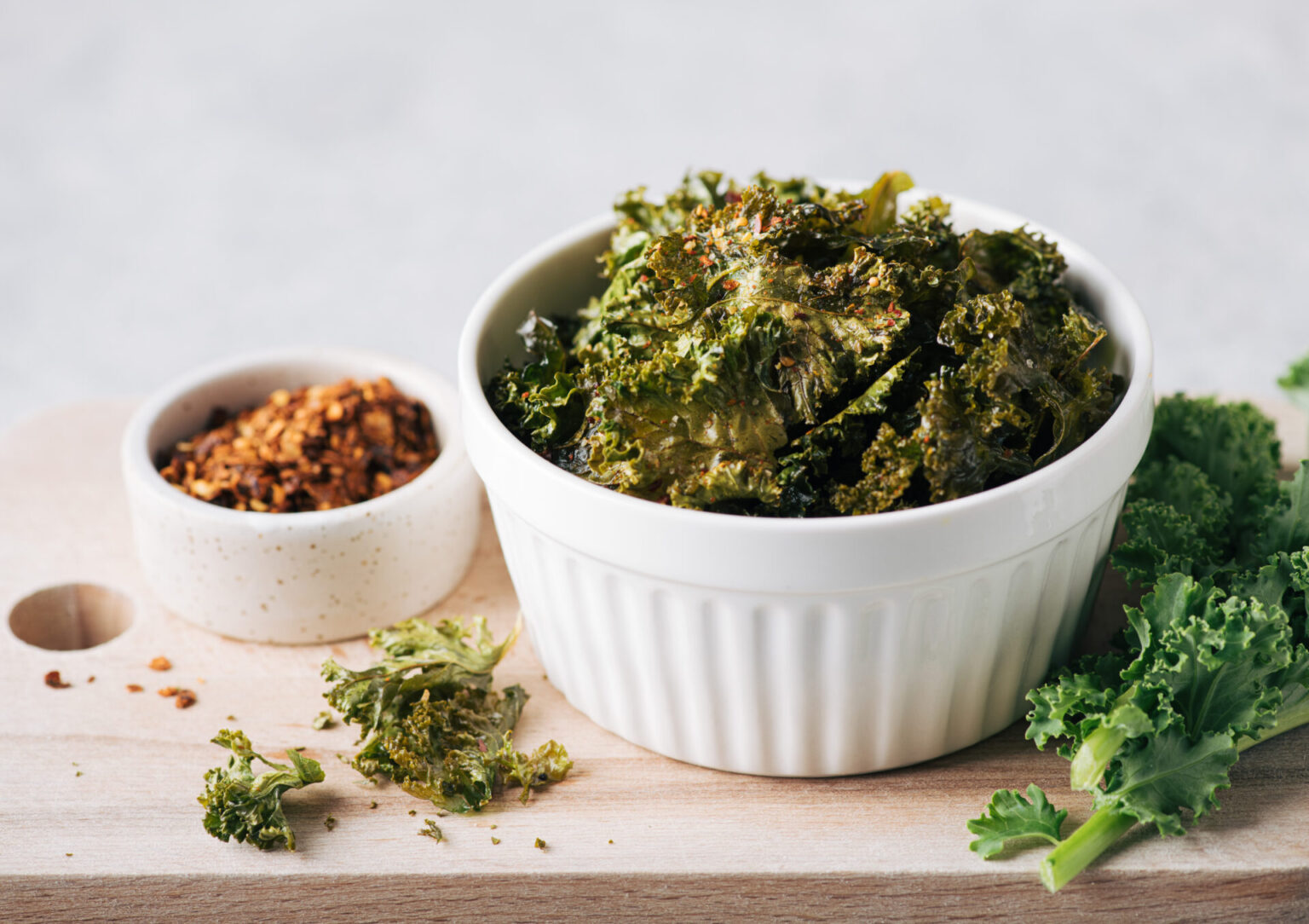
Kale salad
Chef Mathieu Ricardo
Preparation: 25 minutes Chilling time: 30 minutes
Ingredients:
Serves 4 to 6:
60 ml (¼ cup) mayonnaise
30 ml (2 tbsp.) cider vinegar
30 ml (2 tbsp.) olive oil
10 ml (2 tsp. teaspoon old-fashioned mustard
240 g (8 cups) kale, stemmed and sliced
2 green onions, sliced
2 carrots, peeled and grated
50 g (1/2 cup) toasted pecan halves, crushed
Preparation:
1. In a large bowl, whisk together mayonnaise, vinegar, oil and mustard. Season with salt and pepper.
2. Add remaining ingredients.
